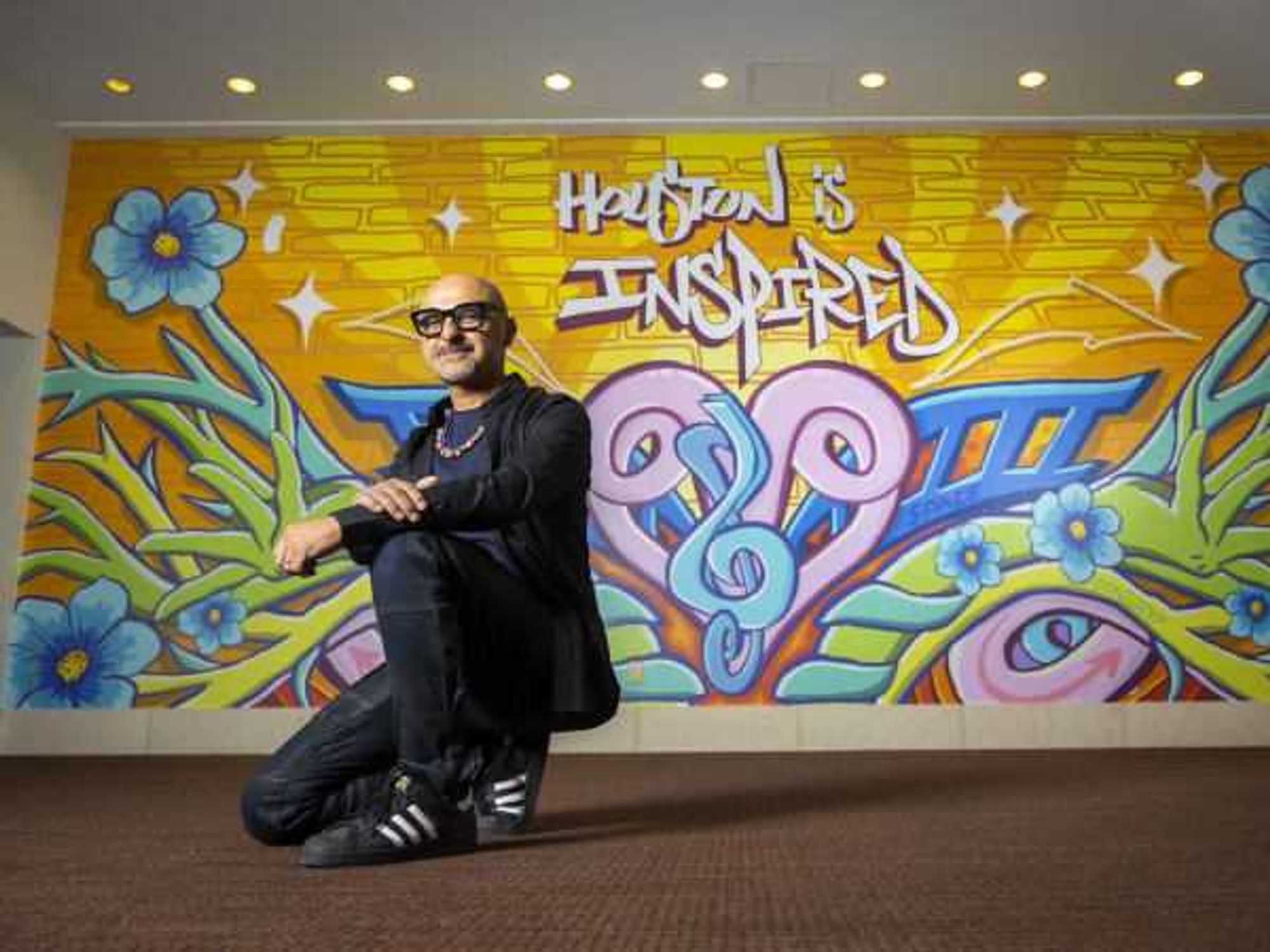Graf's Farewell
Houston Symphony's 99th season plans memorable themes to salute departingmaestro Hans Graf
 Maestro Hans Graf with the Aspen Festival Orchestra.Photo by Hilary Scott
Maestro Hans Graf with the Aspen Festival Orchestra.Photo by Hilary Scott Pianists Jonathan Biss, alongside Garrick Ohlsson, will participate in Best ofBrahms, a three-week musical bacchanal spotlighting the composer's symphonies,piano concerti and other significant works.Photo by © Benjamin Ealovega
Pianists Jonathan Biss, alongside Garrick Ohlsson, will participate in Best ofBrahms, a three-week musical bacchanal spotlighting the composer's symphonies,piano concerti and other significant works.Photo by © Benjamin Ealovega Roman Trekel stars in Berg's Wozzeck.Photo by Cristiane Roncaglio
Roman Trekel stars in Berg's Wozzeck.Photo by Cristiane Roncaglio Hannu Lintu is one of CultureMap's favorites for the symphony's podium.
Hannu Lintu is one of CultureMap's favorites for the symphony's podium.
During the last 12 years, the Houston art scene has seen its share of changes. At the Houston Symphony, the one constant was standing on the podium. Music director Hans Graf is the longest serving maestro in the history of the city's premier classical ensemble, longer than beloved Christoph Eschenbach by one year.
Yes, the orchestra has seen its ups and downs. Amid the tragic loss of scores and musical instruments due to Tropical Storm Allison in 2001, financial crisis after 9/11, the fall of Enron, a strike, changes in administration and contract negotiations, the nonprofit orchestra stands strong with a revived energy and a commitment to stretch its programming and adapt to the ceaseless changes in Houston's ethos.
"When I was 16, I bought my first two scores with money I had in my pocket," Graf says. "That was Brahms' Symphony No. 4 and Stravisnky's Rite of Spring."
"Every organization had challenges, though it seems the Houston Symphony had a higher concentration of trials," Graf tells CultureMap. "We have returned to recording and touring, earning the confidence of musicians and audiences, and attracting a good mixture of experienced artists and young talent."
That's what Graf considers his biggest accomplishment: Helping the group navigate an uncertain era of rapid change.
The 2012-13 season is maestro Graf's last and the symphony's 99th. As such, "Graf's Farewell: A Grand Finale Season" is composed of a memorable theme nodding to the conductor's many meaningful on-stage moments, including favorite works, innovative programming and artistically rewarding works.
Graf's farewell
"I wanted this last year to be special and fill each concert with those who have made my 12 years here special," Graf says. "That includes soloists we usually hear, and some from within the orchestra that don't often get a chance to shine."
That's why September's "Opening Night Showcase" spotlights Ravel's Bolero, a work that has exposed solos for everyone in the symphony, from the first opening flute tune, to the sexy sax to the raucous sliding trombones, alongside solo works performed by non-principal musicians, like flutists John Thorne and Judy Dines, clarinetist Thomas LeGrand and violinists Alexandra Adkins and Sophia Silivos.
A mammoth farewell weekend is set with Mahler's Symphony No. 2 in May.
With the recent success of RachFest, "Best of Brahms" also in September is a three-weekend run of all his four piano concerti with soloists Garrick Ohlsson and Jonathan Biss, symphonies, Variations on a Theme of Haydn, Concerto for Violin and Cello, Tragic Overture, Requiem and Nänie.
"When I was 16, I bought my first two scores with money I had in my pocket," Graf says. "That was Brahms' Symphony No. 4 and Stravinsky's Rite of Spring. I could manage Brahms well, but Rite was wonderfully frustrating at the time."
Alban Berg's Wozzeck is not often staged by opera companies due to its difficulty and tragic subject matter. More than a concert version, Graf will lead a staged performance with dramatic lighting, nominal staging and English surtitles of the frightful serial work. European soloists Roman Trekel as the title character and Anne Schwanewilms as Marie will join vocalists from the Shepherd School of Music in March.
Dvorak's New World Symphony, Tchaikovsky's Symphony No. 5, Shostakovich's Violin Concerto No. 1 with Leonidas Kavakos, Debussy's La Mer and Mozart's Symphony No. 40 climax in a mammoth farewell finale weekend with Gustav Mahler's Symphony No. 2 "Ressurrection" in May, followed by Graf's final Maestro's Wine Dinner, a fundraising soiree on Jones Hall stage.
Classical masterworks
Lang Lang returns to take on Beethoven's Piano Concertos No. 2, 3 and 5, each in a different concert in October, followed by an ambitious program anchored by Berlioz' colorful Symphony Fantastique and Richard Strauss Horn Concerto No. 1, featuring the symphony's principal horn, captain William VerMeulen.
Passionate and not Pathétique, Tchaikovsky's Symphony No. 6 closes a paybill with Bartok's Violin Concerto No. 2 showcasing violin virtuoso Augustin Hadelich in November. Then there's Bruckner's Symphony No. 6, Mahler's Symphony No. 1 in January, Prokofiev's Suite No. 2 from Romeo and Juliet and a production dedicated to the fiery spirit of Rodrigo and Falla in April.
All access
The Houston Symphony will continue its Access series following the successful debut of the interactive format last year with NPR's Morning Edition music savant Miles Hoffman. During these informal concerts, audiences attend a pre-concert mixer, a one-hour program and engage in a post-concert conversation with the artists.
Access performances are set for October with Berlioz's Symphonie Fantastique and May with Stravinsky's angular Violin Concerto and Mozart's elegant Symphony No. 40.
Guests conductors to watch
Who will take over Graf's baton? A series of guest conductors will play throughout the symphony season and odds are one will become the new maestro. Though our top choices so far are Hannu Lintu and Christoph Koenig, on the short list are John Storgårds, Pablo Heras-Casado, Andrés Orozco-Estrada, Juanjo Mena, Thomas Dausgaard, Gilbert Varga and Carlos Kalmar.
Click here to read about who will be appearing at the Houston Symphony's 2012-13 series of pops concerts and family concerts. (Hint: Pink Martini, Brian Stokes Mitchell, James Bond and West Side Story).
